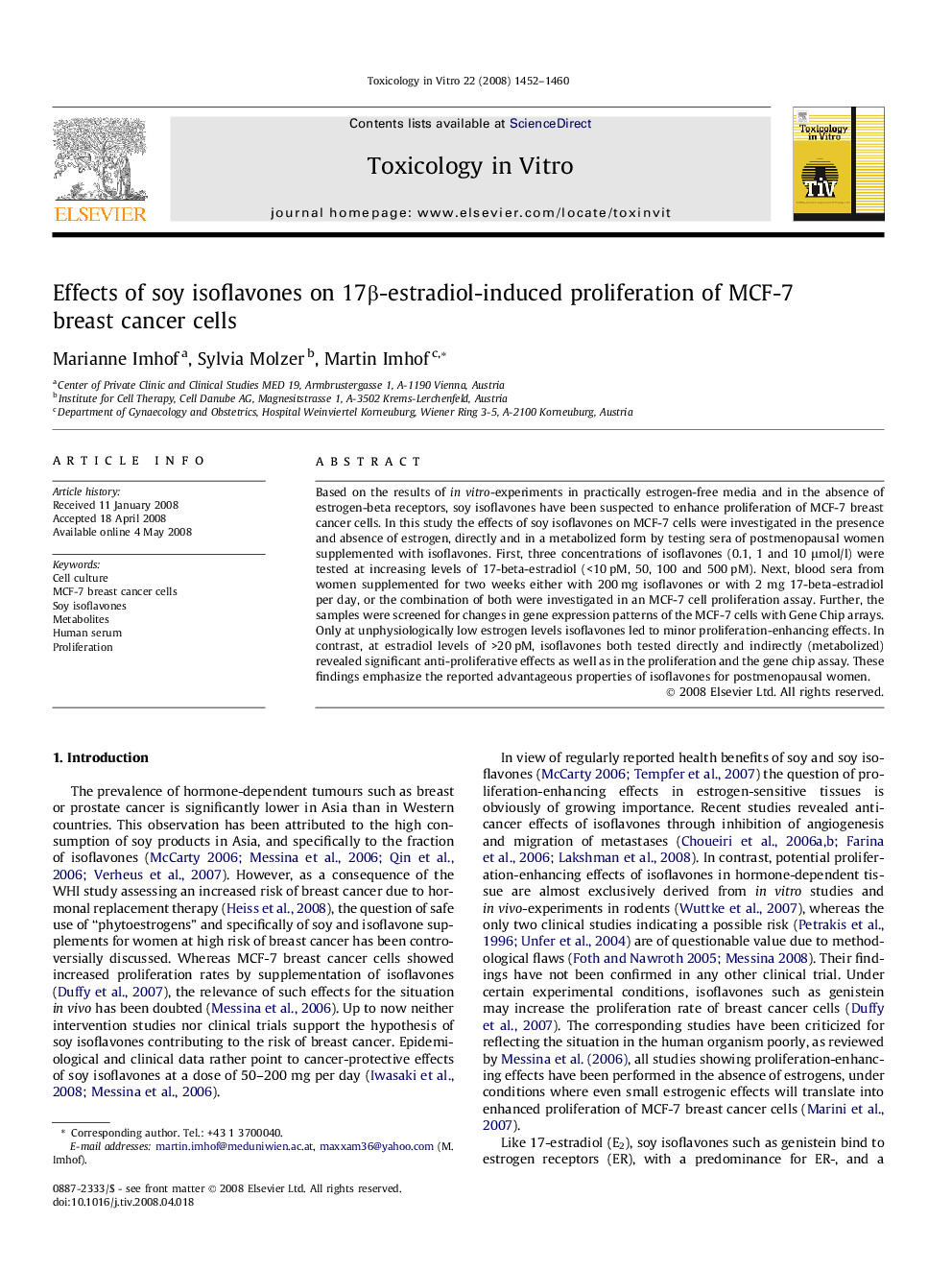| Article ID | Journal | Published Year | Pages | File Type |
|---|---|---|---|---|
| 2603087 | Toxicology in Vitro | 2008 | 9 Pages |
Based on the results of in vitro-experiments in practically estrogen-free media and in the absence of estrogen-beta receptors, soy isoflavones have been suspected to enhance proliferation of MCF-7 breast cancer cells. In this study the effects of soy isoflavones on MCF-7 cells were investigated in the presence and absence of estrogen, directly and in a metabolized form by testing sera of postmenopausal women supplemented with isoflavones. First, three concentrations of isoflavones (0.1, 1 and 10 μmol/l) were tested at increasing levels of 17-beta-estradiol (<10 pM, 50, 100 and 500 pM). Next, blood sera from women supplemented for two weeks either with 200 mg isoflavones or with 2 mg 17-beta-estradiol per day, or the combination of both were investigated in an MCF-7 cell proliferation assay. Further, the samples were screened for changes in gene expression patterns of the MCF-7 cells with Gene Chip arrays. Only at unphysiologically low estrogen levels isoflavones led to minor proliferation-enhancing effects. In contrast, at estradiol levels of >20 pM, isoflavones both tested directly and indirectly (metabolized) revealed significant anti-proliferative effects as well as in the proliferation and the gene chip assay. These findings emphasize the reported advantageous properties of isoflavones for postmenopausal women.
